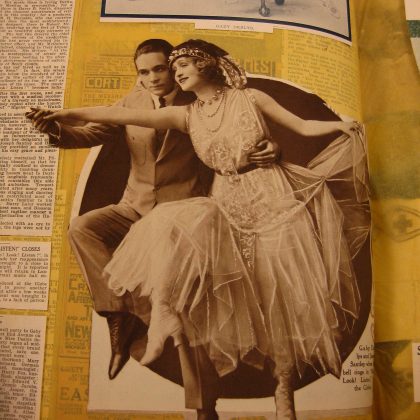A Spanish Civil War Scrapbook
All I hoped as I embarked on my doctorate devoted to cross-cultural encounters between the International Brigades and the Spaniards who hosted them in the course of the Spanish Civil War was that those cross-cultural encounters had actually taken place. I was fairly certain that I would find evidence of soldiers and civilians coming into contact in the villages of the loyalist rearguard, and spent my time prior to hitting the archives wondering if this could be stretched into an entire thesis. The last thing I expected to find was a whole series of long-forgotten documents outlining the International Brigades’ extraordinary attempts to house, feed and educate hundreds of children from war-torn parts of the peninsula. This is not to mention the various parties they held all throughout the rearguard, the likes of which were well documented in the volunteers’ internal press alongside photographs of uniformed soldiers, almost always surrounded by beaming youngsters.
By far the most interesting document I stumbled upon in my searches through the digitised Russian State Archive of Socio-Political History was a scrapbook put together by children looked after in an International Brigade home in Mataró, a town not far from Barcelona, which included some of their very own letters and drawings. I knew immediately that this was a remarkable find. The challenge was to do that find justice. For those who have read the ensuing article – ‘Soldiers of Culture and their Little Comrades’ – it might be useful to know what my first impressions of the scrapbook were, and how they fed into my final argument. What immediately struck me was the extent to which its contents not only offered an incredibly rare window into the experiences of children in the Spanish Civil War, but did so from their own perspective. Their uncertain handwriting and crude penmanship invested them with a profound sense of humanity, particularly when describing the hell they had been through before finding themselves in the Brigades’ care.
Despite the suffering contained within their letters, what began to dawn on me as I flicked through the digitised pages of the scrapbook was that the children of Mataró do not always come across as the passive, one-dimensional victims of war we are used to seeing their counterparts elsewhere as. On occasion, they even stepped into the seemingly adult role of war’s proponents – so long, of course, as it was being waged against the fascist villains responsible for killing and mutilating their international friends on the frontlines. Children as young as nine were creatively engaging with the volunteers’ own partisan interpretation of the conflict as a national struggle for survival against the fascist invaders, with the sheer violence of some of their drawings deeply shocking me – in one, a group of volunteers are shown gleefully mowing down some enemy soldiers, one of whom has been launched into the midst of an inky bomb-blast.
Here was children’s agency as I had never seen it. Those looked after at Mataró in 1938 were at once victims of war and little comrades who supported the International Brigades’ role in perpetuating it.
Soldiers of Culture’ and their ‘Little Comrades’: The International Brigades and the Children of Civil War Spain, 1936-1939 by Adrian Pole






